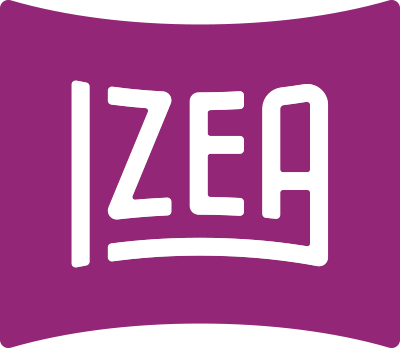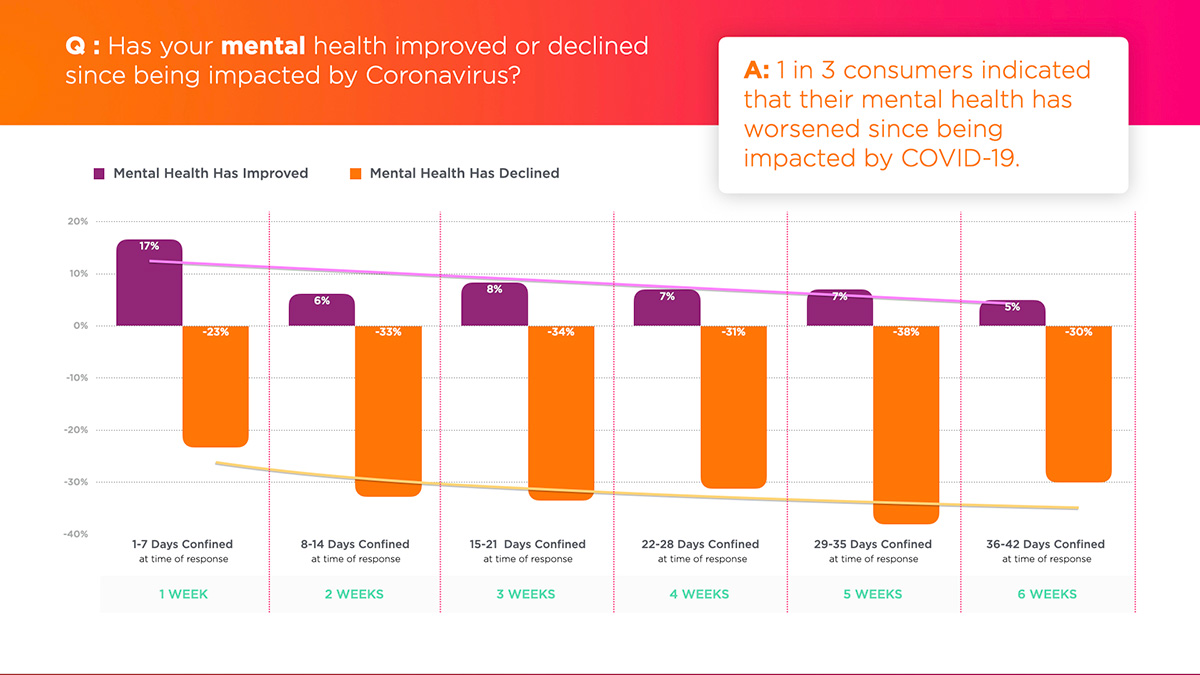42% of Social Media Influencers Say They Are Hoarding Toilet Paper During Coronavirus Lockdown
Orlando, Florida (April 14, 2020) – IZEA Worldwide, Inc. (NASDAQ: IZEA), operator of IZEAx®, the premier online marketplace connecting brands and publishers with influential content creators, released its latest research initiative, “COVID-19 Stay-at-Home Impacts on Consumer Wellness” today. The U.S. consumer study examines the impacts of COVID-19 “Stay-at-Home” orders among those currently confined to their homes. It also focuses on the physical and mental health changes people have experienced since lockdown, as well as the impacts on their social media and purchasing behaviors.
The new report is available to download for free, here: izea.com/covid19/consumer-wellness
IZEA fielded the study on April 9, 2020, as many U.S. consumers were entering their 2nd or 3rd week of home confinement. All of those who participated in the study indicated that they were “confined to their home,” however only 21.3% said that they have not left their homes at all. The majority of those who participated in the study (76%) said they have left their house for those items that they deemed ‘essential.’
Given the rapidly changing environment, IZEA’s research initiatives aim to inform, educate, and assist product marketing decision makers that must adapt while continuing to operate their businesses. Results are based on the responses from 1,061 U.S. Internet users ages 16-99 who self-identify as confined to their home.
Key Statistics for Coronavirus Impacts on Mental Health Include:
- 32% of all respondents indicate that their mental health has declined since being impacted by Coronavirus; 38% for those in confinement for 5 weeks.
- Social media influencers indicate a uniquely positive mental outlook during the Coronavirus lockdown, with 41.4% reporting their mental health has improved vs. only 8.5% for all respondents.
- All age groups report increased stress levels, with those under 18 being most stressed and those over 60 being least stressed.
Key Statistics for Coronavirus Impacts on Physical Health Include:
- 19% of all respondents indicate that their physical health has declined since being impacted by Coronavirus, with 31% of those aged 30-44 reporting a decline.
- 52% say that they are working out at home while being impacted by Coronavirus.
- TikTok users are 1.6x more likely to say that their sexual activity has decreased during lockdown vs. those that don’t use social media.
Key Statistics for Coronavirus Impacts on Consumption Include:
- 42% of social media influencers say they are hoarding (or trying to hoard) toilet paper vs. 13.8% of those who don’t use social media at all.
- 51% say they are drinking more water and 34% say they are drinking more coffee.
- 25% say that they are eating more cookies and 21% say they are eating more ice cream.
“The impacts of COVID-19 on consumer wellness have been dramatic and far-reaching,” said Ted Murphy, Founder and CEO of IZEA. “While we are only a few weeks into stay-at-home orders, a decline in both physical and mental health is already being reported by a significant percentage of the population surveyed. Parents with minor children living at home are particularly vulnerable right now as they seek to balance work and home schooling with the reality of decreased financial resources. Marketers should take great care in this period of time and seek to help people regain life balance and make healthily choices.”
“Social media is playing an even more meaningful role in consumers’ daily lives as they search for content to educate, entertain, and keep them connected,” continued Murphy. “What’s encouraging is that 8.5% of those who actively engage on social media report a positive increase in their mental health as compared to only 3.8% for those who don’t use social media. In a time of great stress, many have found that online communities can assist them in coping and keeping a positive outlook on life.”
“However, there is also cause for concern, as there appears to be a direct correlation between social media usage and the hoarding of paper goods and water. Those surveyed who use social media are 1.5x more likely to be hoarding toilet paper and 1.3x more likely to hoard bottled water. In addition, our survey found that social media influencers are three times more likely to hoard toilet paper as compared to those who don’t use social media. We believe that those with larger online audiences are likely having an impact on the phenomenon that has left many store shelves void of paper products, water, and canned goods. The promotion of hoarding through social media not only has negative impacts on the mental health of social media users, but also stresses supply chains and the ability to provide for those in need.”
To view all of IZEA’s COVID-19 consumer research in full visit izea.com/covid19.






